As Russia’s military invasion of Ukraine rumbles on after more than three years of bloody conflict, one man has stood by Russian President Vladimir Putin every step of the way: Belarusian President Alexander Lukashenko.
The old-fashioned strongman, 71, who has been in power since July 1994, was quick to back Putin by hosting 30,000 soldiers on his soil prior to the invasion commencing in February 2022 and offering to dispatch his own forces to Ukraine to support Russia “if needed.”
Lukashenko subsequently helped Putin by hosting Russian tactical nuclear weapons in his country, by playing a key role in negotiating an end to the short-lived mutiny staged by Yevgeny Prigozhin’s Wagner Group mercenaries and by threatening the West with the prospect of nuclear war if it backs Ukraine with heavy weapons.

Lukashenko considers himself both his country’s “Batka” (father) and Europe’s “last dictator”. However, his authority is not recognized by most western governments given that he has been repeatedly accused of rigging multiple presidential elections, the last of which, in January this year, returned him to power with a healthy 88 percent of the vote.
Born under Soviet rule on 31 August 1954 in Kopys in the Vitebsk Oblast, Lukashenko was reportedly bullied at school for having an unmarried mother, Ekaterina Trofimovna Lukashenko, who was forced to work a string of menial jobs to support herself and her son. Her own mother, incidentally, came from the Sumy Oblast in northern Ukraine.
The identity and whereabouts of the future president’s father remain unknown, although he is rumoured in some quarters to have been an itinerant member of the Roma community passing through the region.
Lukashenko graduated from the Mogilyov Teaching Institute in 1975 and served in the Belarussian Border Guard from 1975 to 1977, where he was an instructor in political affairs stationed in Brest near the Polish border, and then again in the Soviet Army from 1980 to 1982, where he was a deputy political officer with the 120th Guards Motor Rifle Division based in Minsk.
In the intervening years, he led a chapter of the All-Union Leninist Young Communist League (Komsomol) in Mogilev.
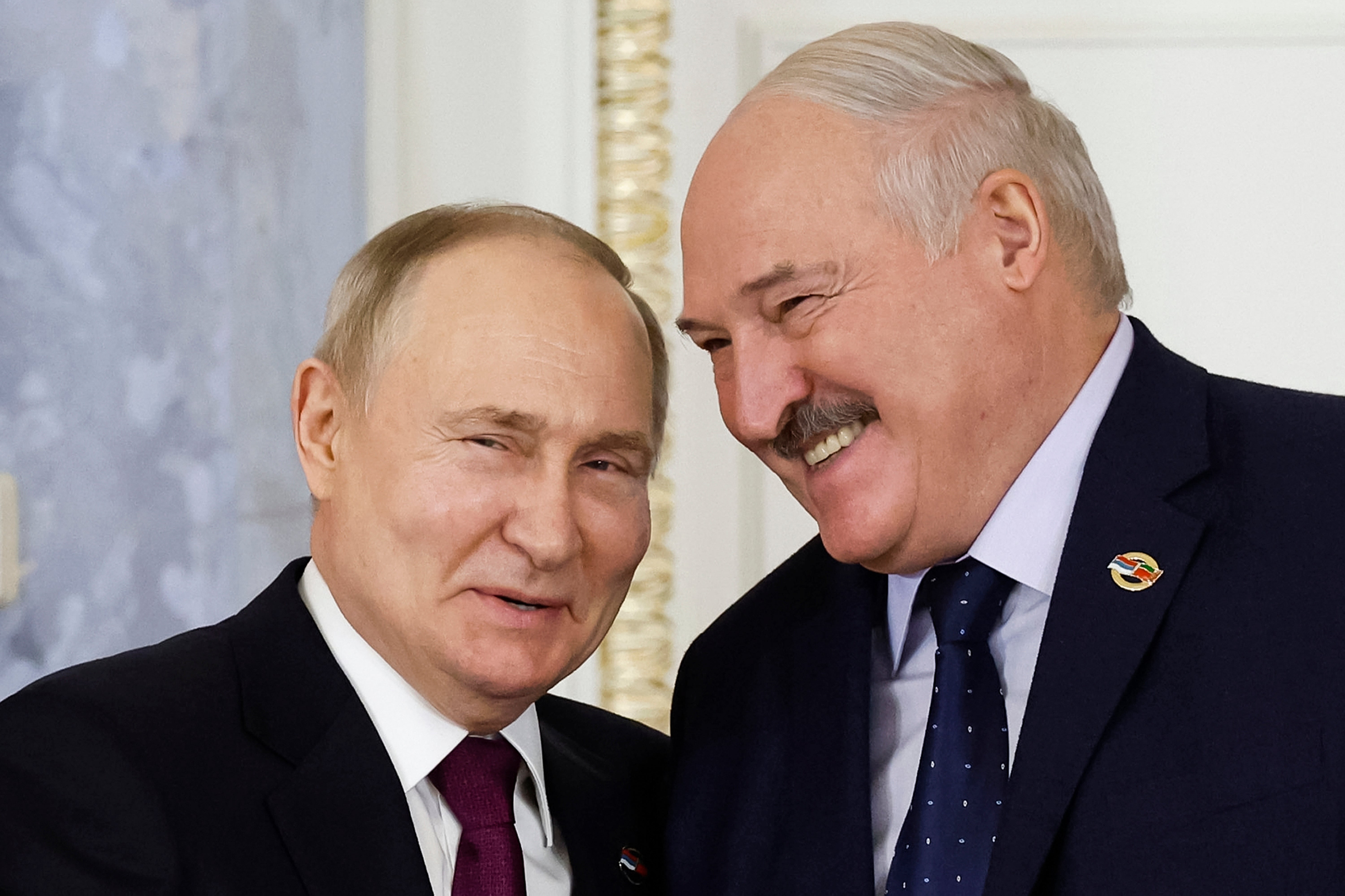
Between 1982 and his election to parliament in 1990, Lukashenko became first the deputy chairman of a collective farm and then director of the Gorodets state farm in the Shklow district, also managing a construction materials plant.
With the collapse of the USSR, he was elected as a deputy to the Supreme Council of the Republic of Belarus and quickly established a reputation as an opponent of corruption, which would form the basis of his political appeal – somewhat ironically, as it would turn out.
In late 1993, he accused 70 senior officials of embezzling state funds, which was enough to secure the resignation of the council’s chairman Stanislav Shushkevich after losing a vote of confidence, a scandal that ultimately proved to be baseless but presented Lukashenko with the platform he needed to sweep his way to the presidency the following summer.
In office, he remained passionately pro-Russian and sought closer ties with Moscow, having been the only deputy to oppose the agreement that led to the formal dissolution of the Soviet Union in December 1991.
He subsequently appealed to Boris Yeltsin and the Russian Duma for a new union of Slavic states at a time when the map of Europe was being drastically redrawn and other former satellite states held behind the Iron Curtain were celebrating their newfound independence and daring to imagine a brighter tomorrow.
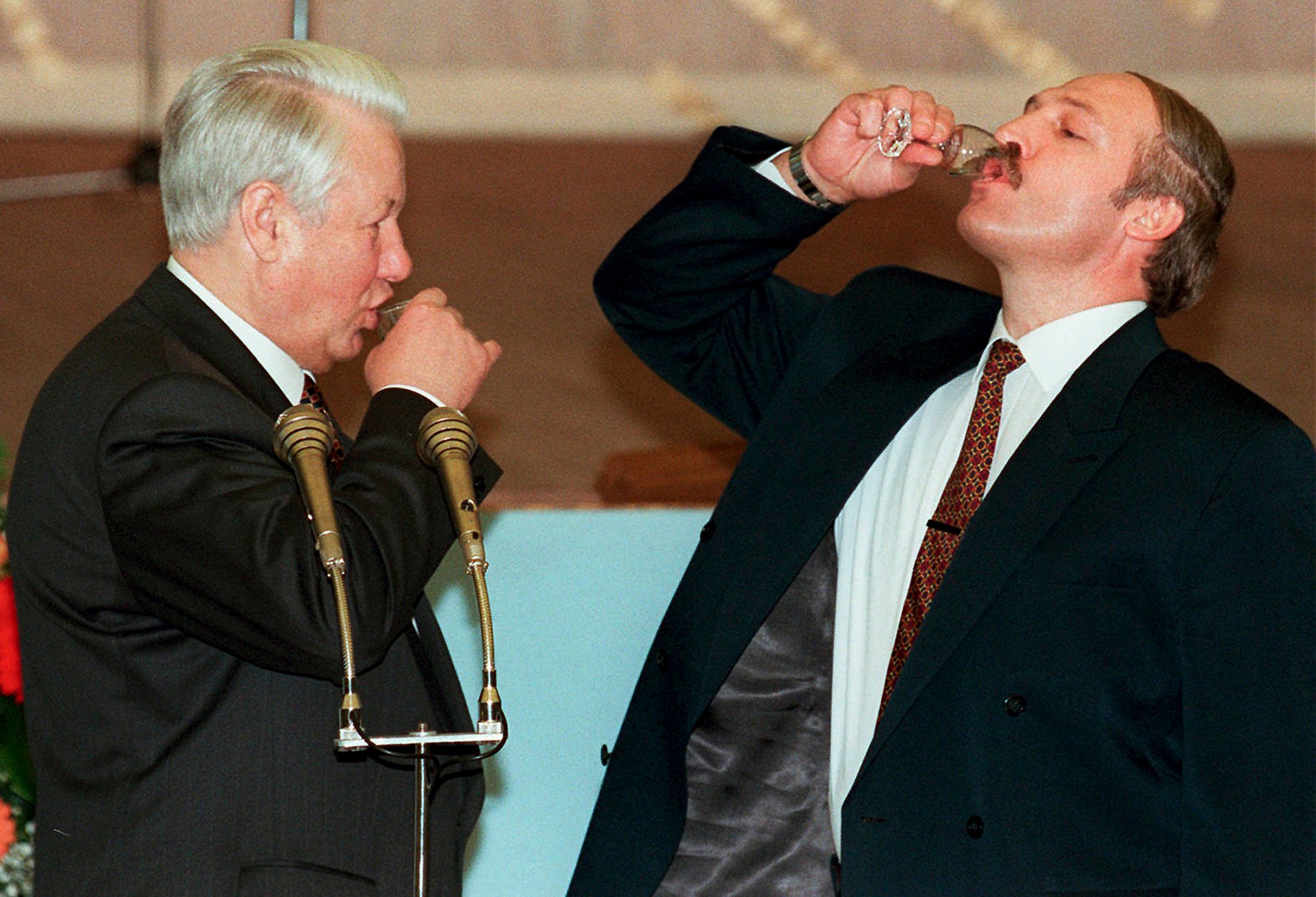
With no such union forthcoming, he set about shoring up his own affairs and establishing a new constitution, approved in 1996, which saw him introduce a suite of authoritarian powers, enabling him to rule by decree, prolong his term in office and personally appoint one-third of parliament.
He began to suppress political dissent and silence the media as Belarus once more found itself shut off from the international community, no longer as part of the USSR but now as an independent pariah state in its own right.
In 1999, he extended his first term by two years to complete negotiations on a treaty with Russia pledging broad political cooperation between the two states.
He was duly re-elected in 2001, in 2006 and again in 2010, with widespread claims of voting irregularities tainting both of those latter “victories” and ensuring fresh condemnation from the EU.
Lukashenko told local protesters he would “wring their necks like a duck” when they raised objections.
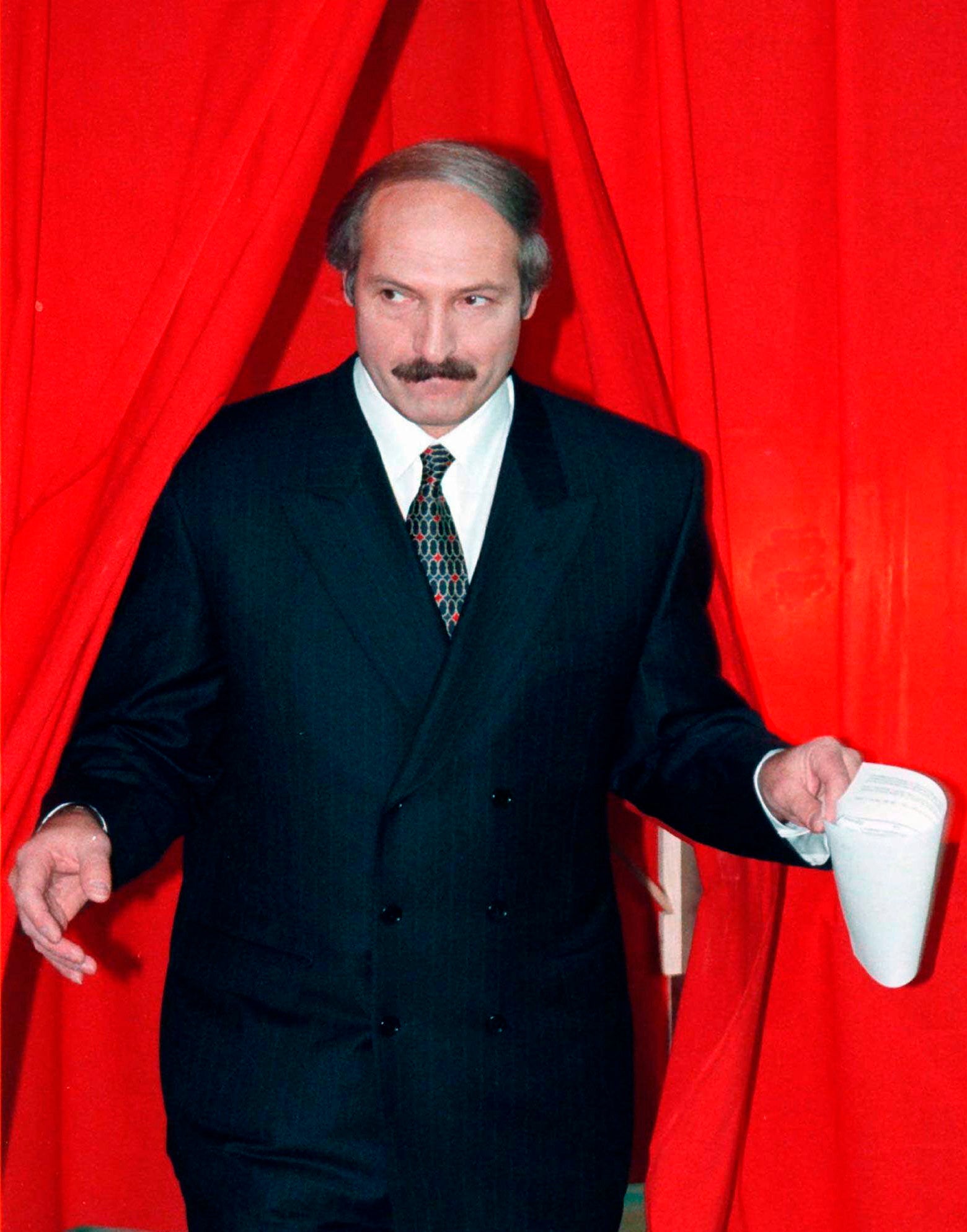
When Putin annexed the Crimean Peninsula from Ukraine in 2014 as punishment for the popular overthrow of his ally Viktor Yanukovych as president, sparking the separatist war in the Donbas that has rumbled on ever since, Lukashenko attempted to play peacemaker.
Putin and Yanukovych’s successor, Petro Poroshenko, met in the Belarusian capital with the encouragement of France and Germany and ultimately signed the two Minsk agreements for bringing peace to the region, which were never implemented because of differing interpretations of their meaning by Kyiv and Moscow.
Lukashenko has since won three more elections, in 2015, 2020 and 2025, all of which were again claimed amid widespread suspicion that the one-time anti-corruption czar had again been the beneficiary of crooked counts.
His August 2020 win led to mass protests from an electorate exasperated by his rule and poor handling of the Covid-19 pandemic (he had told his people to “kill the virus with vodka,” go to saunas and work in the fields to avoid infection and proclaimed: “Tractors will cure everybody!”)
The largest of these demonstrations brought 200,000 people to the streets and saw thousands beaten in a violent police crackdown, 35,000 activists arrested and opposition leaders Svetlana Tikhanovskaya and Veronika Tsepkalo forced into exile.

As part of the vendetta that followed his return to the Independence Palace in Minsk, Maria Kolesnikova – a prominent member of the opposition Coordination Council – was sentenced to 11 years in prison and her lawyer, Maxim Znak, jailed for 10 years, the pair bogusly charged with conspiring to seize power, creating an extremist organisation and calling for actions damaging state security.
Minsk’s Supreme Court meanwhile ordered the closure of the the Belarusian Association of Journalists, a liquidation that followed the jailing of some 30 reporters, raids on newspaper offices, the blocking of websites belonging to major independent media organisations and the shutdown of the PEN Center writers’ organisation, headed by Nobel literature laureate Svetlana Alexieveich.
Lukashenko’s administration had also cancelled accreditation for foreign news organisations when the initial protests erupted, silencing the media continuing to be a crucial tactic in ensuring the upkeep of both his own regressive regime and that of Putin in the Kremlin.
In a subsequent brush with international notoriety, the Belarussian leader ordered a Lithuania-bound Ryanair jetliner en route from Greece to be diverted to Minsk last May so that one of its passengers, self-exiled opposition journalist Raman Pratasevich, could be arrested.
Belarusian authorities said the action was taken after a bomb threat was made against the plane but western officials dismissed that as a preposterous attempt to disguise what they called an act of piracy.
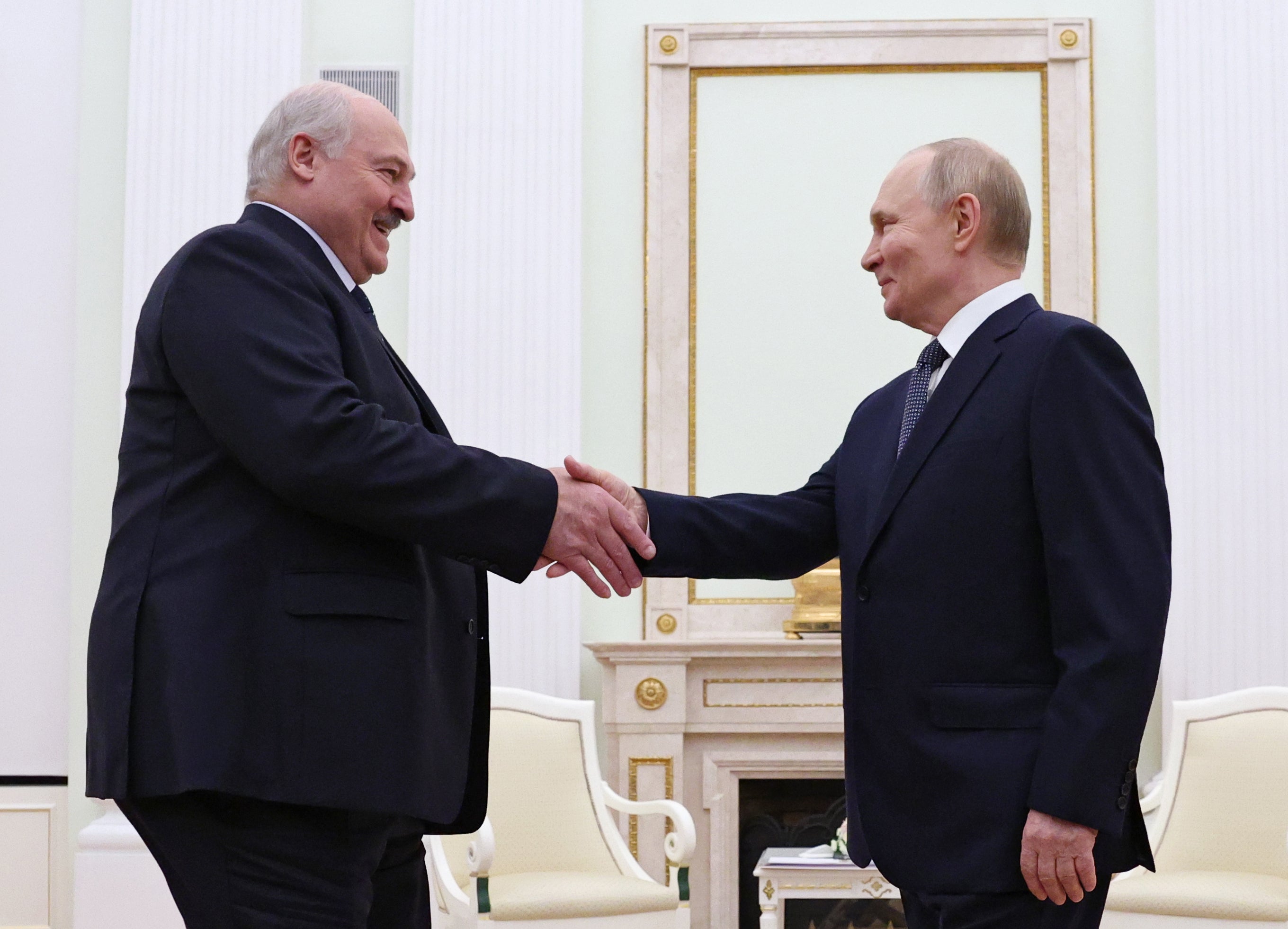
Despite much sabre-rattling at the start of Russia’s invasion of Ukraine, arguably Lukashenko’s most significant contribution so far has been his negotiating an end to the mutiny staged by Prigozhin’s Wagner forces in June 2023. That uprising briefly threatened to topple Putin but ultimately saw his men stand down and Prigozhin meet an untimely end in a suspicious plane crash just two months later.
Lukashenko has subsequently continued to remind the west of the Russian nukes in his backyard and indiciated he is prepared to use, most recently making that threat as part of an effort to dissuade President Donald Trump from giving Tomahawk long-range missiles to Ukraine.
As for the future, the Belarusian said in August 2025 that he was “not planning” to seek another term while also dismissing speculation that his son Nikolai was being groomed as his successor.

.jpeg)

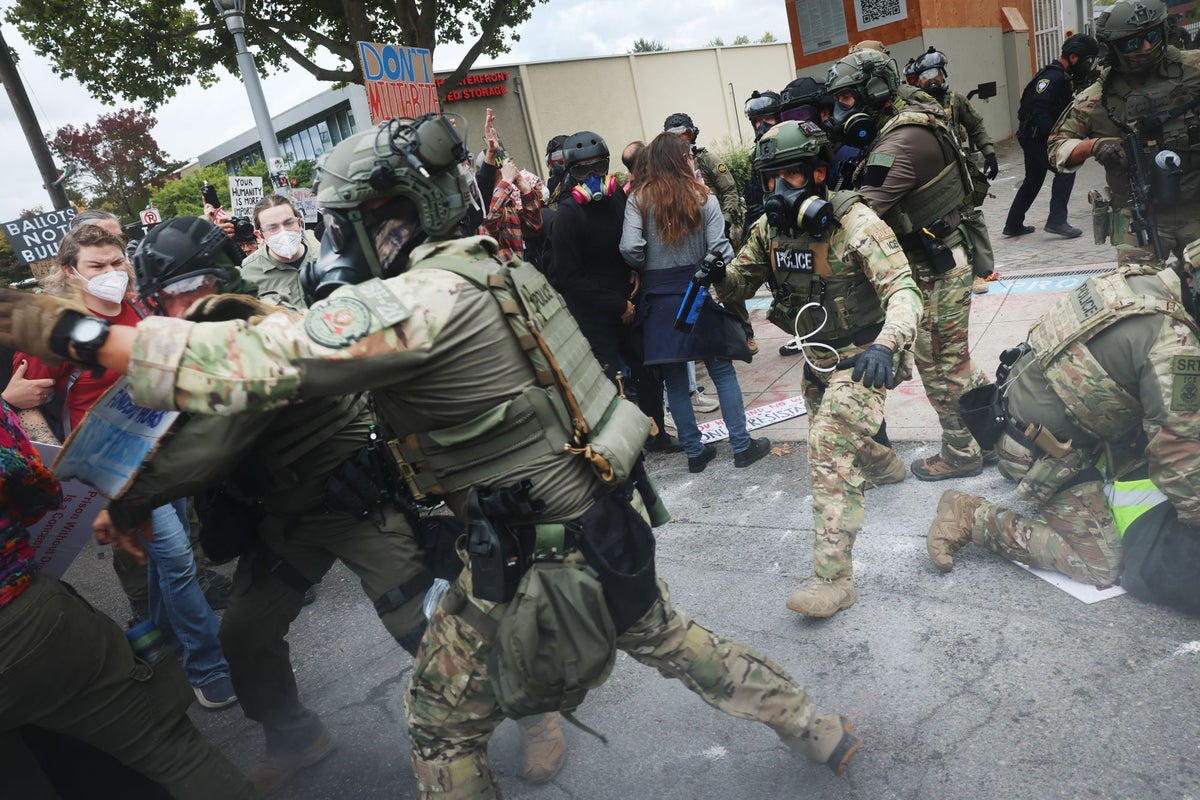




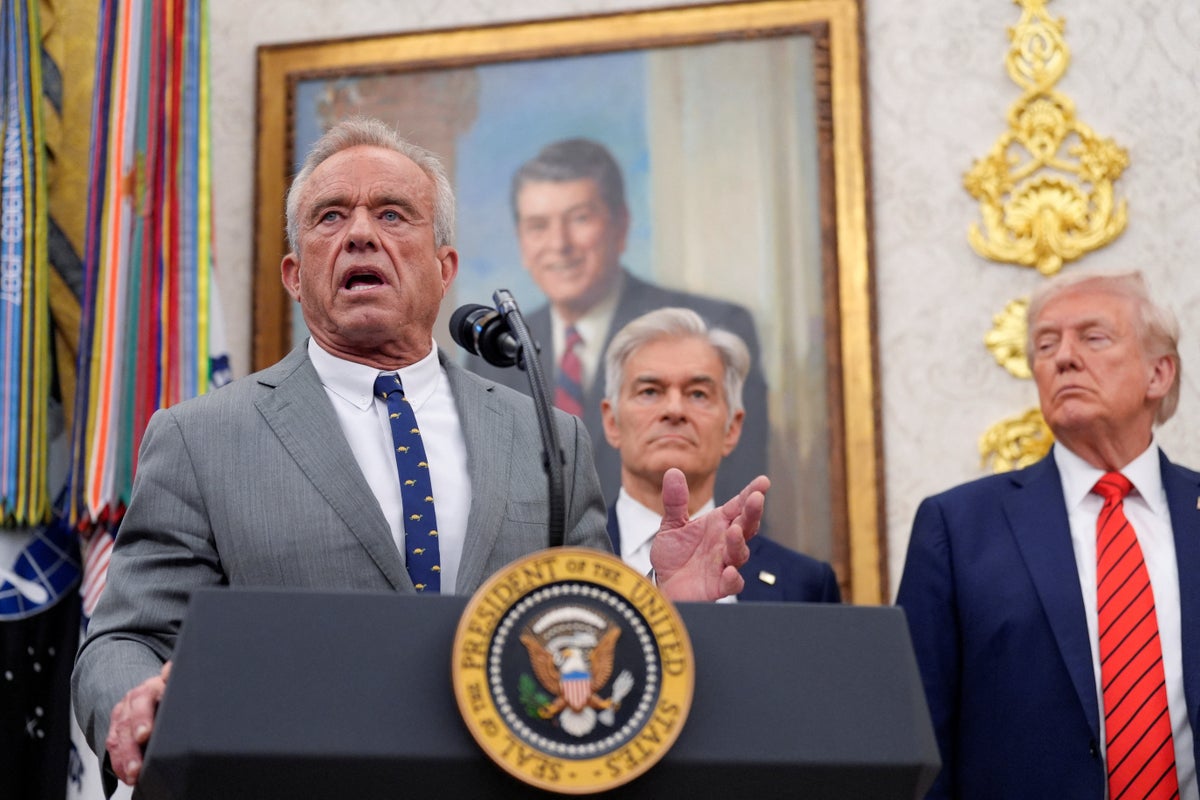


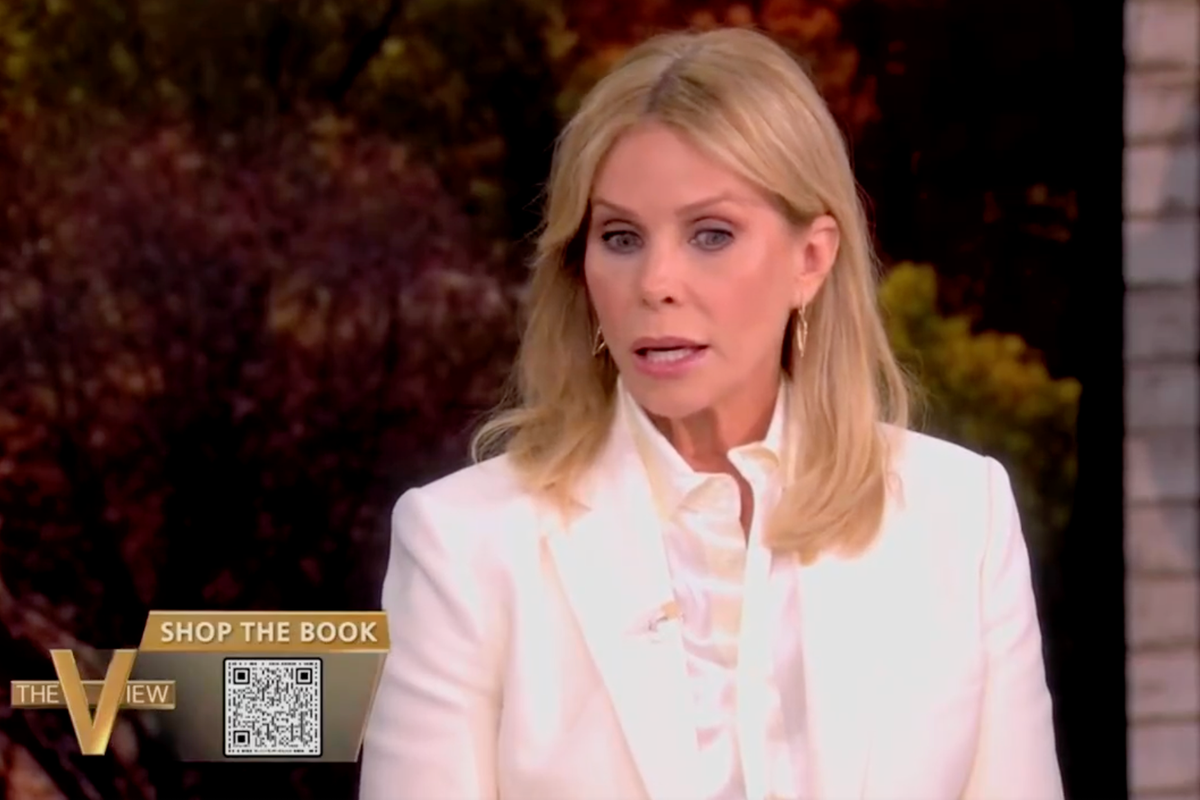
.jpg?trim=0,0,0,0&width=1200&height=800&crop=1200:800)

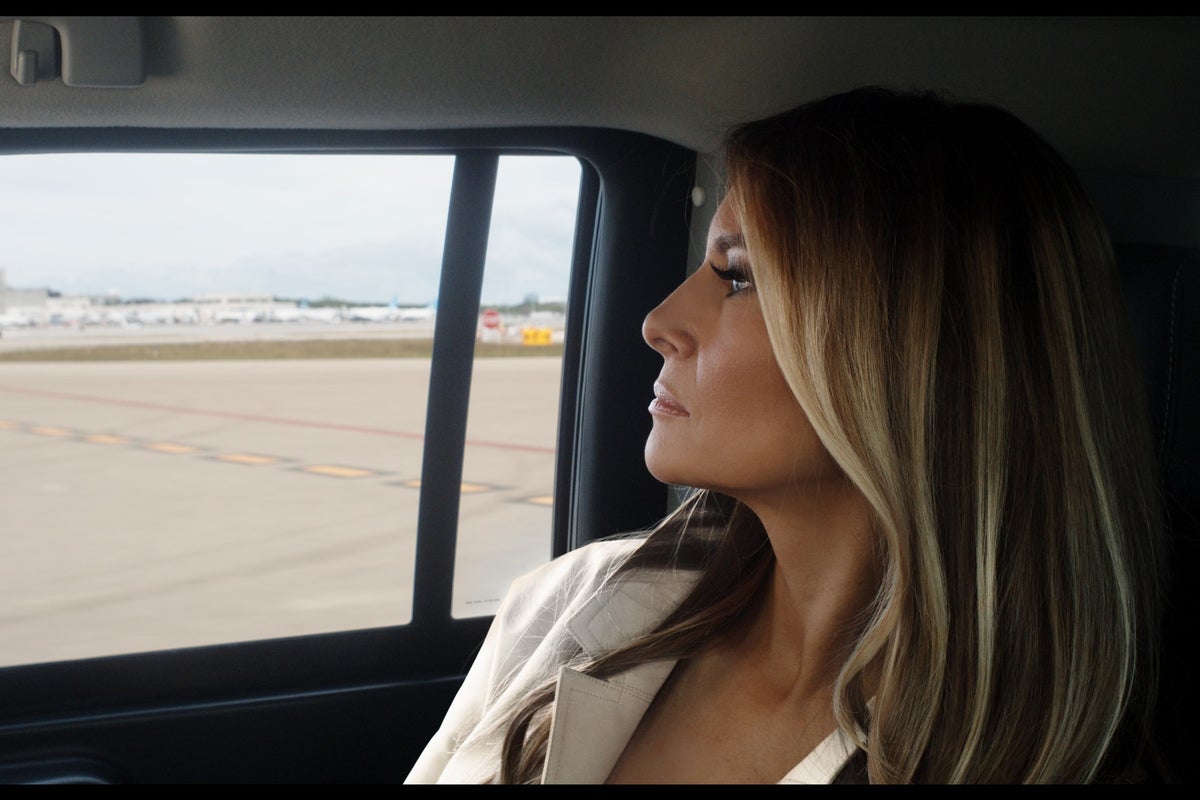








.jpeg)













 English (US) ·
English (US) ·